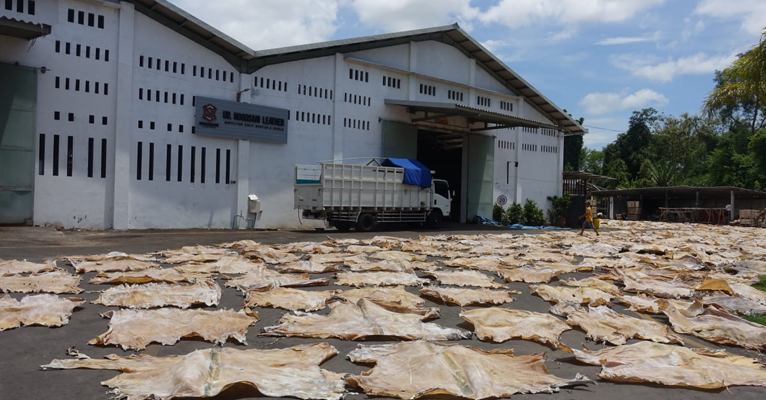Saat ini perdagangan internasional sedang menikmati kebijakan tarif rendah sebagai dampak dari sistem perdagangan bebas.…

1 Decade of Work for the Indonesian Footwear Forum
ABOUT FFID
Started in 2014 in Bandung as part of the Indonesian Footwear Designer community event, Footwear Forum ID or FFID is a forum for sharing inspiration and knowledge by Indonesian footwear industry players with anyone who wants to learn and deepen this profession through seminars, talk shows, workshops and other. Seeing the increasing demands of the industry, FFID evolved into a brand that prioritizes education to improve the quality of Indonesian designers. Through the Connect/Educate/Promote mission, FFID presents various products that can help realize the goals of every Indonesian designer.
FOOTWEAR FORUM VOL.06
Inspired by the Footwear Forum Vol.03 event in 2017, which discussed all aspects of this industry, Footwear Forum Vol.06 again raised the same theme, intending to reintroduce everyone involved in the shoe-making process from upstream to downstream but with market demands wider. Apart from this purpose, this event is also a pre-event celebrating one decade of FFID, which will be held in 2024
10 YEARS FFID
Through various events to introduce the profession and support the quality of Indonesian designers from 2014 until now, FFID has contributed to producing new and talented talents who have produced quality works both in Indonesia and abroad. Collaboration with many parties, such as government, brands, and communities, has also been done to realize our vision and mission. 2024 will be the year to commemorate one decade of FFID, and we will celebrate all our achievements as proof that Indonesian designers have something worth fighting for.
From the perspective of industrial ecosystem development, the birth of the Footwear Forum brings fresh air to the development of the national footwear industry. The gathering of talented young talents, especially in the footwear industry, proves that Indonesia's footwear ecosystem can make better progress.
The domestic footwear industry, which is currently dominated by the influence of local brands, is a testament to the growth of the creative economy in the domestic market. The creative economy is an inevitable part of globalization. Industrialization has created work patterns in industrial and distribution systems oriented towards cheaper and more efficient. The phenomenon of the production system with the lowest possible cost as part of the effect of competence is increasingly focused on details. Today's large industrial countries can no longer rely on their supremacy and history in the manufacturing industry. Currently, they have to rely more on human resources who are more creative, so later in the 1990s, this phenomenon was better known as the new economic era that focuses on information and creativity, which is popularly called the Creative Economy which is driven by industrial sectors that are no longer focused on communication and creativity. Only on commodities but focus on added value and creativity.
This public space is called collaboration. This concept introduces the importance of collaboration-based research and development. From this synergy, it's hoped that every organization focusing on research and sectoral product development can empower the creative community, the business community, academics/scholars, and local culture to create a new added value called innovation. This concept is based on the capitalization of knowledge
The most appropriate application for public or government organizations is to provide space for the main actors in forming knowledge (knowledge space) so that they have creative freedom to create a consensus space where these actors make agreements and commitments on something. Which ultimately leads to innovation space. The output of this innovation space can be products and services that are packaged creatively, have economic value, and still refer to local culture. This process must continue to be played by curatorial teams who can manage the human resources within it. The success factor for an organization focusing on R&D is fostering creativity in an environment that can create dynamic interactions between the three critical actors in innovation.
In the future, the Footwear Forum's role is expected to be able to encourage collaboration between young talents so they can capitalize knowledge into added value for the domestic footwear industry.

Alfiyan Darojat


